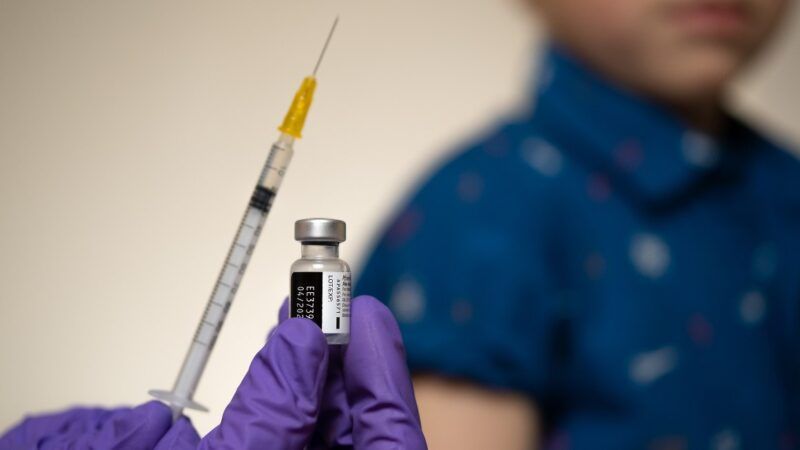Starbucks Rescinds Employee COVID-19 Vaccine Mandate
Starbucks has decided the vaccine mandate isn't good for their business

Starbucks will no longer require its employees get a COVID-19 vaccine. Chief Operating Officer John Culver informed employees of the decision in a memo sent on January 18.
The announcement follows the Supreme Court's January 13 decision in National Federation of Independent Businesses v. OSHA. Following a sweeping executive order that would have required private companies with 100 or more employees to make their workers get vaccinated or submit to regular testing, the Court ruled that the Department of Labor, absent congressional authorization, lacks the authority to enforce such a rule.
Starbucks had imposed a vaccine mandate on its 228,000 U.S. employees in order to comply with that executive order.
Starbucks is far from the only company to update its vaccination policies in response to the Supreme Court's ruling. General Electric (GE) axed its vaccine mandate last week. The company had temporarily suspended the policy after a lower court ordered a stay on the Biden administration's mandate, and it eliminated it entirely after the ruling came down.
The clothing manufacturer Carhartt went in the opposite direction, maintaining a mandate for its 5,500 workers. "The ruling does not change Carhartt's mandatory vaccination program," Chief Executive Officer Mark Valade explained in a memo. "Carhartt fully understands and respects the varying opinions on this topic, and we are aware some of our associates do not support this policy. However, we stand behind our decision because we believe vaccines are necessary to protect our workforce."
Unsurprisingly, these corporate decisions have sparked both praise and condemnation. Some consumers have vowed to boycott companies for either upholding or abandoning their mandates.
The science makes it clear that the COVID-19 vaccines make both hospitalization and death from the virus far less likely. But there are good reasons for government not to coerce private companies into these mandates. It is a violation of bodily autonomy and an infringement on the rights of private employers. Furthermore, during a labor shortage, many companies are not in a position to eliminate potential hires from their candidate pool.


Show Comments (39)